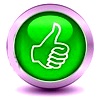A wiki is a web platform that enables multiple users to collaboratively create, edit, and arrange content through a browser.
Simplicity and openness are central to wikis: anyone can often add or change pages without technical knowledge, and edits are usually logged for review or rollback.
Key features
- **Collaborative editing:** Multiple people can edit the same pages, occasionally concurrently.
- **Edit history:** All edits are stored with timestamps and the author’s name or IP.
- **Interlinking:** Links between pages are simple to create, helping build connected content.
- **Lightweight markup:** Pages are typically formatted with lightweight markup like WikiText or Markdown.
- **Permission settings:** Wikis may allow public editing or restrict changes to registered or authorized users.
- **Discussion pages:** Separate talk pages allow contributors to discuss edits and structure.
Typical uses
- Community-driven knowledge bases (for example, Wikipedia)
- Project docs and corporate knowledge repositories
- Cooperative writing and shared notes
- Classroom and educational projects
Pros
- **Fast collaboration:** Many people can collaborate and iterate quickly on content.
- **Openness:** Visibility into edits and discussions shows how decisions were reached.
- **Expandable:** Wikis can grow naturally as contributors add new topics.
Limitations
- **Vandalism and false information:** Public editing can lead to vandalism or incorrect information.
- **Inconsistent quality:** Articles can differ greatly in depth, tone, and reliability.
- **Organizational issues:** Without clear governance, content may become fragmented or disputed.
Illustration
- **Wikipedia** — the largest example, maintained by the Wikimedia Foundation and contributed to by volunteers worldwide.






















